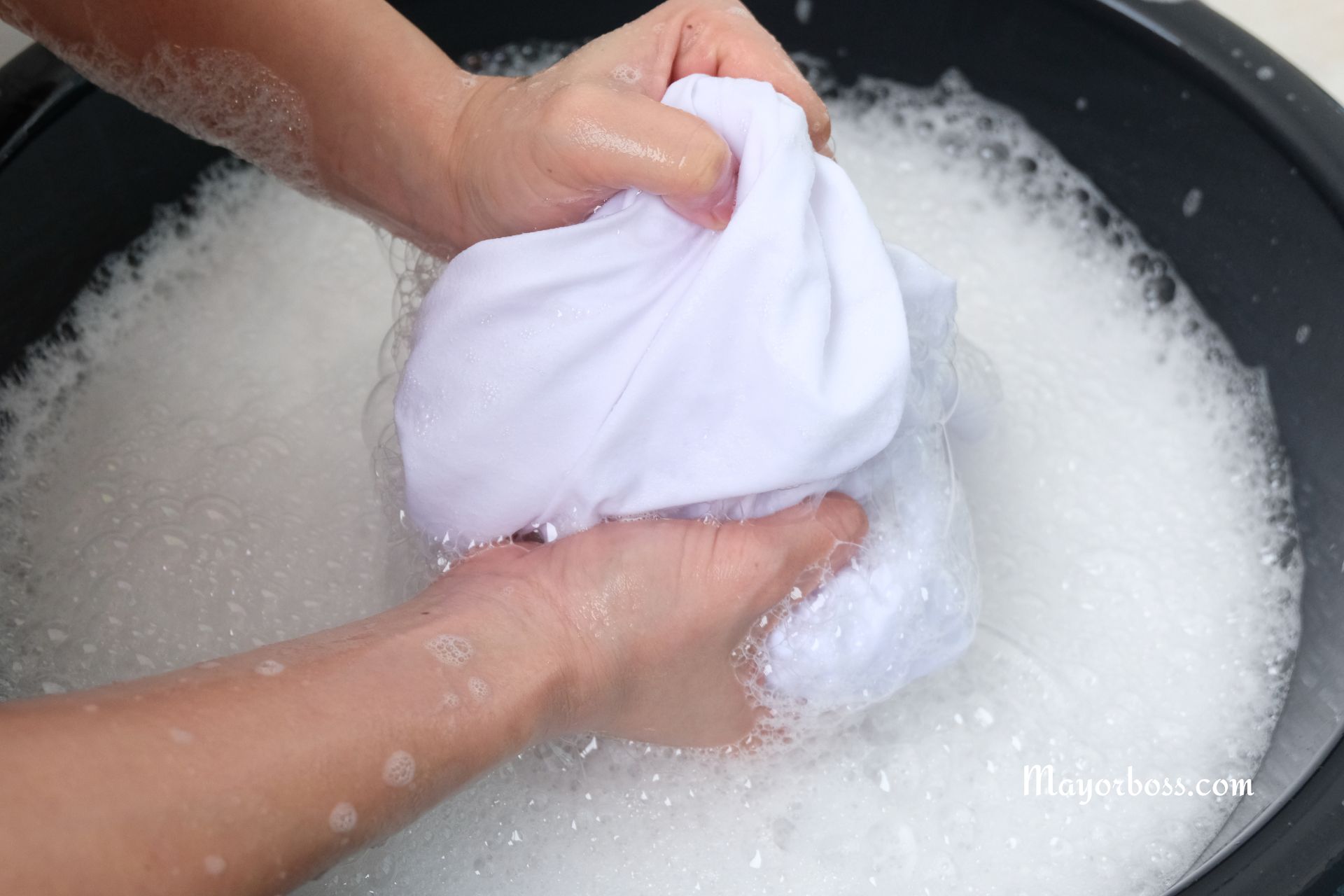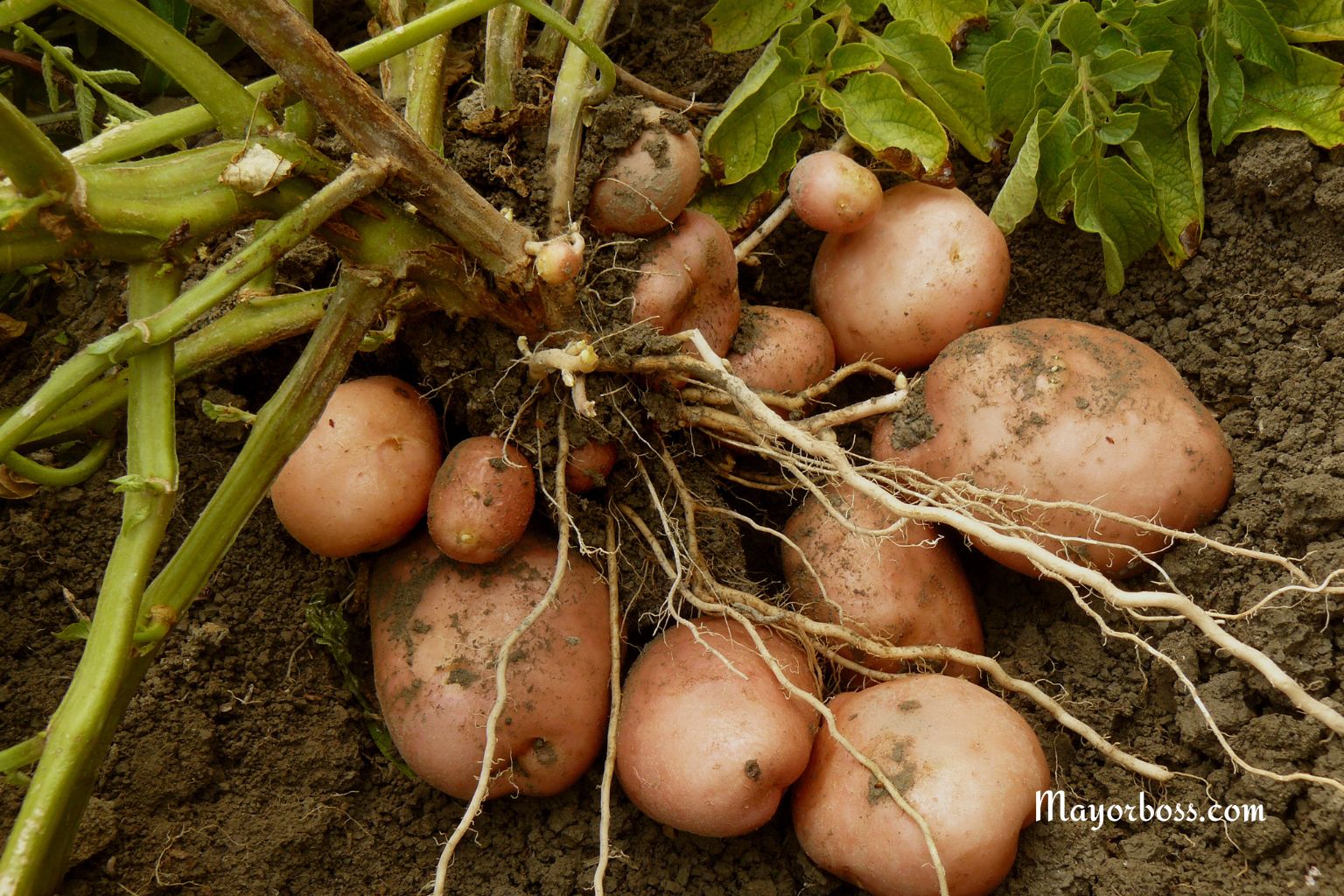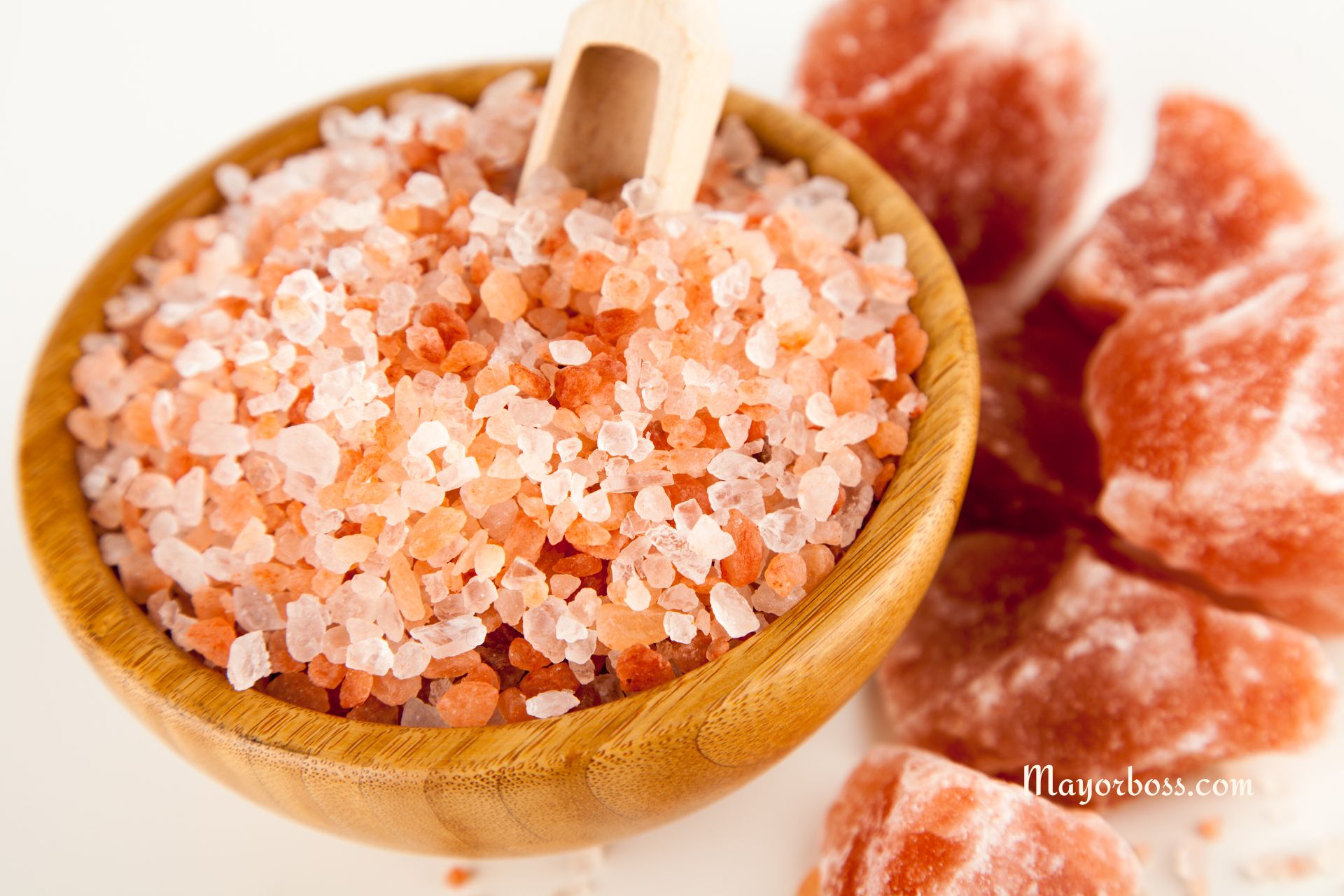Are Eggshells Good for Plants? Here’s What Garden Experts Say
Crushed eggshells can help improve your soil and protect plants naturally, if you use them the right way.
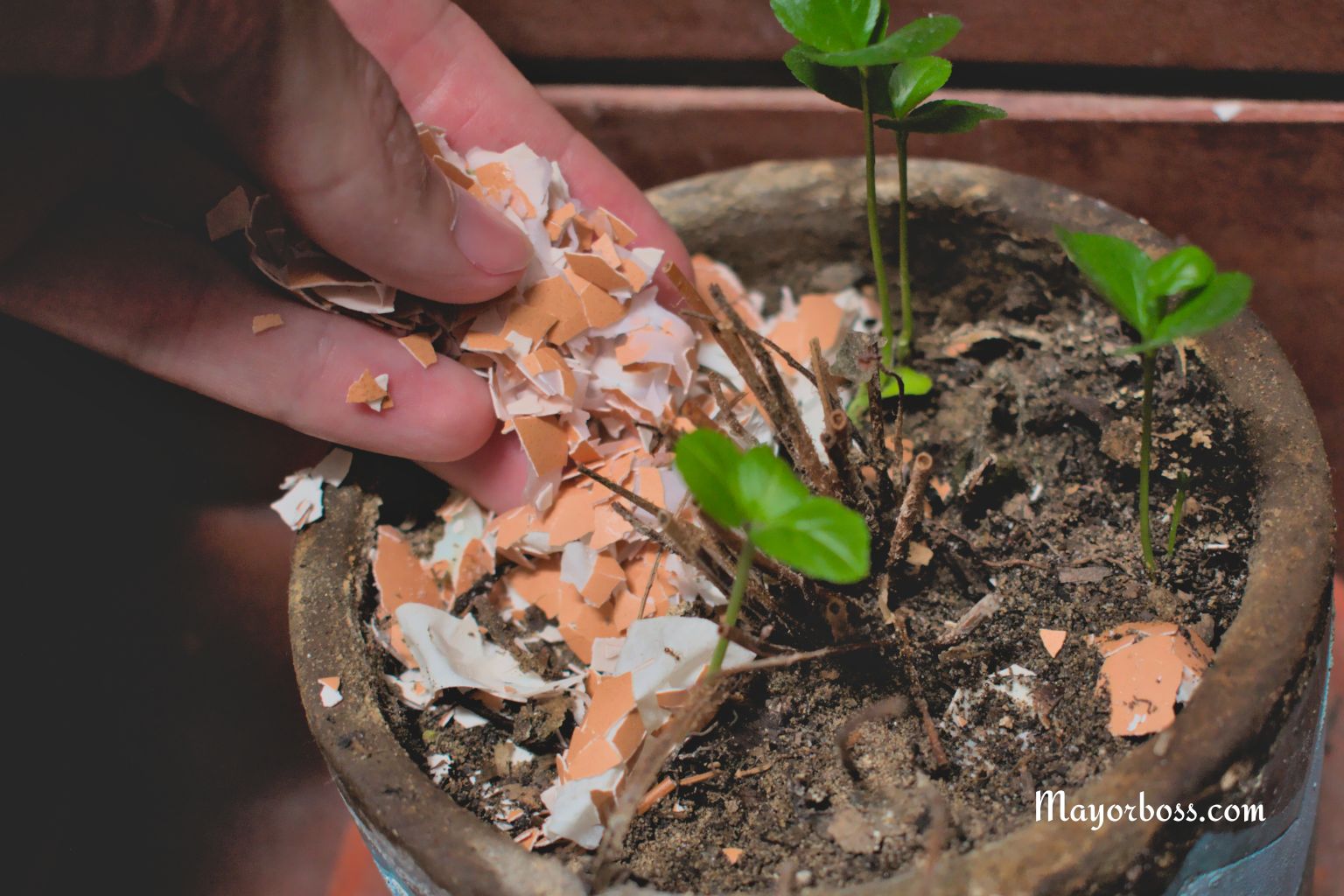
What’s Inside an Eggshell?
Eggshells are made mostly of calcium carbonate. This is the same material found in limestone. Calcium is an essential nutrient that helps plants build strong cell walls. Without it, plants may struggle to grow, and their leaves or fruit might show signs of weakness or damage.
Besides calcium, eggshells also contain small amounts of other minerals like magnesium and phosphorus. These nutrients support healthy root development and flowering.
Are Eggshells Good for Plants?
Yes! But with a few important details.
Garden experts agree that eggshells can be helpful to plants, but they don’t work like fast-release fertilizers. They break down slowly, so their nutrients take time to reach your soil. That means they’re better for long-term soil health than for quick fixes.1
Using eggshells can:
- Add calcium to the soil over time
- Help balance pH in acidic soil
- Improve soil structure when mixed in
- Deter some pests like slugs and snails
However, they are not a complete fertilizer. You still need to feed your plants with compost or other nutrient-rich options.
How to Use Eggshells in the Garden
To get the best results, don’t just toss whole shells into the dirt. Here are the steps most experts recommend:
1. Rinse Them First
Wash off any egg residue. This keeps away pests and reduces odor as the shells decompose.
2. Dry Them Out
Let them air-dry completely or bake them briefly in the oven (about 200°F or 95°C for 10 minutes). Dry shells crush more easily.
3. Crush Them Fine
Use a mortar and pestle, a food processor, or simply your hands to grind the shells into small pieces or even powder. The smaller the pieces, the faster they break down in soil.
4. Mix Into the Soil
Sprinkle the crushed shells around the base of your plants or mix them into potting soil. You can also add them to compost to boost calcium content.
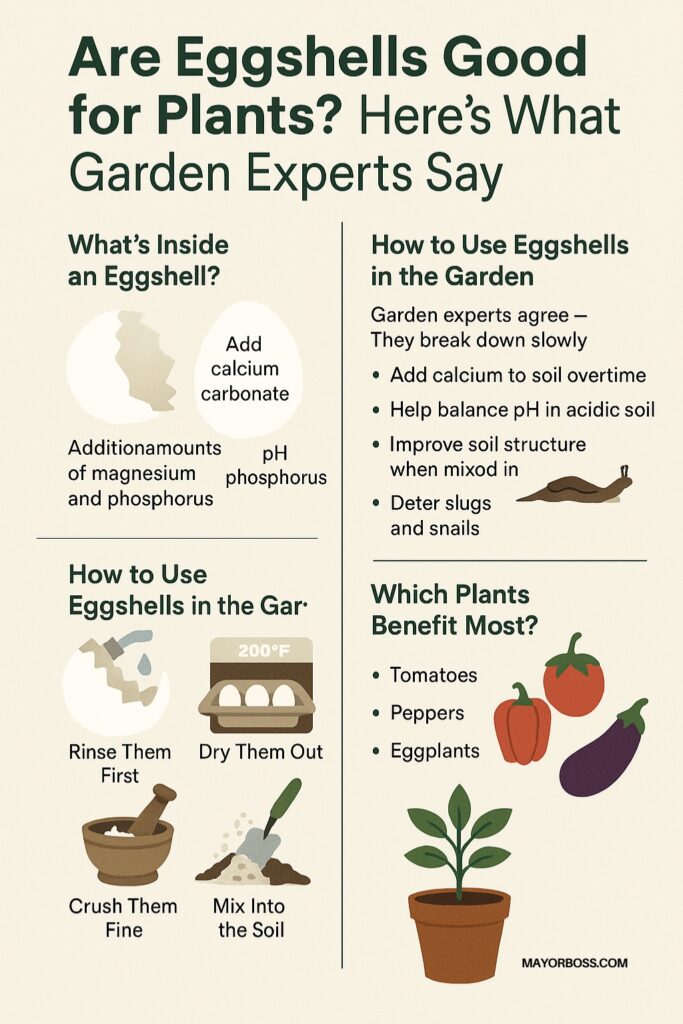
Which Plants Benefit Most From Eggshells?
Eggshells are especially helpful for:
- Tomatoes
- Peppers
- Eggplants
These crops are prone to a condition called blossom end rot, which is linked to calcium deficiency.
Other plants like potatoes, roses, broccoli, cauliflower, leafy greens, and cabbage also benefit from added calcium.
Do Eggshells Keep Pests Away?
Some gardeners say that crushed shells repel slugs and snails. The sharp edges can irritate their soft bodies, making them turn away. However, studies show mixed results. Rain or watering can soften the shells quickly, reducing their effect.
Still, they’re worth trying as part of a natural pest-control plan, especially if you already eat eggs regularly.
Can You Add Eggshells to Compost?
Absolutely. Eggshells are a great addition to compost. They don’t break down as fast as fruit or veggie scraps, but they still contribute minerals over time. To help them decompose faster, crush them well before tossing them in.
Any Downsides?
Here’s what to keep in mind:
- Slow release: They won’t fix problems overnight.
- Not enough on their own: Your plants need more than just calcium.
- Can attract animals if not cleaned: Always rinse first to avoid smells or pests.
If your soil is already rich in calcium, adding more may not help and could even throw off the balance of other nutrients.
FAQs
1. Can you put whole eggshells in the soil?
Yes, but they take much longer to break down. Crushing them speeds up the process and makes nutrients more available.
2. Do eggshells make the soil more alkaline?
Slightly, but the effect is mild and slow. You’d need a lot of eggshells to change pH significantly.
3. Are eggshells safe for all plants?
Most plants tolerate eggshells well, but those that prefer acidic soil (like blueberries) may not benefit as much.
4. How long do eggshells take to break down in soil?
In a backyard garden, crushed eggshells can take several months to decompose fully, especially in cool or dry conditions.
5. Can I use eggshells in potted plants?
Yes. Just make sure they’re crushed and don’t overcrowd the soil. Mix them in lightly or layer at the bottom of the pot for drainage support.

